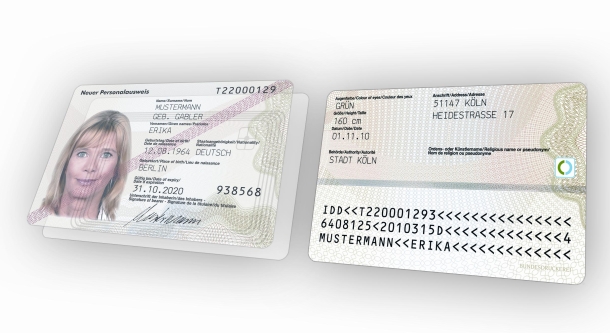NXP wins German ID card contract

The Dutch semiconductor firm NXP has picked up the contract to provide RFID chips for Germany's new identity cards.
NXP said in a statement on Thursday that its SmartMX secure contactless microcontroller chip would power the new German National Identity Card, with more than 60 million such cards due to be deployed over the next decade. German authorities intend the card to be used for e-government and e-commerce services, as well as a passport replacement for travel within the EU and to some other countries such as Tunisia, Morocco and Egypt.

The new identity cards will be used for e-government and e-commerce services, as well as a passport replacement. Credit: NXP
"The new German ID card will set new standards in terms of document security, privacy protection and citizen convenience," Cornelia Rogall-Grothe, state secretary at the Federal Ministry of the Interior (BMI), said in the statement. "With its citizen-centric approach, it is a prime example for other countries to follow."
Over 150 companies are trialling ways to use the card, NXP said, with applications including online banking, e-commerce site registration, airline passenger check-in, online tax-filing and car registration.
According to NXP, the SmartMX platform "comprises a number of unique security features to guard against reverse engineering and attack scenarios with light and lasers, as well as a dedicated hardware firewall to protect specific sections on the chip".
The UK had a scheme to introduce similar ID cards, but that plan was scrapped by the new coalition government.
SmartMX chips involved in the German deal can also run the MiFare protocol, used for contactless transactions such as paying by swiping a card on a reader. MiFare underpins London's Oyster travel cards, but since being cracked in 2008, the MiFare Classic version of these cards is being phased out and replaced with NXP's newer MiFare DesFire version.